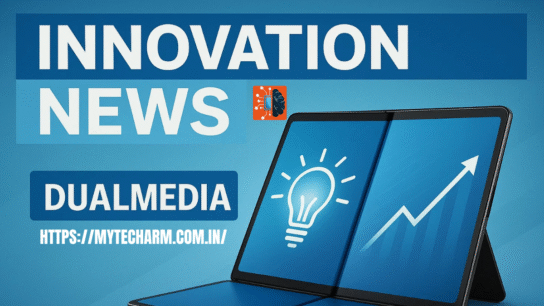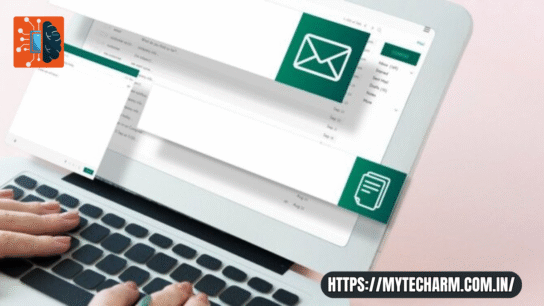If you’re in the tech space, you’ve seen artificial intelligence weave its way into almost every industry imaginable, from self-driving cars to sophisticated data analysis. But what about the creative fields? Specifically, can AI truly lend a hand in something as intuitive and artistic as making music? As someone who’s spent countless hours tweaking knobs and arranging samples, I was initially skeptical. Yet, the more I explore, the more I see AI not as a replacement for human creativity, but as a fascinating new collaborator, especially for beatmakers.
The world of beat-making, whether you’re a seasoned producer or just someone who enjoys tinkering with sounds for a podcast intro or a social media clip, can be incredibly rewarding. But let’s be honest, it can also be a source of major creative friction. That blinking cursor on a blank digital audio workstation (DAW) screen? It can feel like a void staring back at you. This is where the conversation around AI in music creation gets really interesting.
The Modern Beatmaker’s Dilemma: More Tools, More Pressure?
Creating beats today is a universe away from the analog setups of a few decades ago. We have DAWs that are virtual studios, an endless supply of VST plugins, and sample libraries bigger than most record stores. Yet, this abundance can sometimes lead to option paralysis. The pressure to be original, to find that unique sound, and to do it all efficiently, is immense.
Think about the common hurdles:
- Creative Blocks: We all hit them. That frustrating feeling when the ideas just won’t flow, or when everything you create sounds derivative.
- Skill Gaps: Maybe you have a killer melody in your head but struggle with drum programming, or you’re great with rhythms but music theory feels like a foreign language.
- Time Constraints: Crafting the perfect beat takes time – a luxury not everyone has, especially if music isn’t your full-time gig. Content creators, indie game developers, or even marketers often need custom music quickly.
- The Innovation Imperative: In a world saturated with content, standing out is key. This often means pushing sonic boundaries or blending genres in new ways.
Technology has always been the beatmaker’s silent partner in overcoming these challenges. From the MPC sampler revolutionizing hip-hop to the accessibility of DAWs democratizing music production, tech has consistently empowered creators. AI is simply the next evolutionary step in this partnership.
Enter AI: Your New Studio Assistant (Who Never Needs a Coffee Break)
When we talk about AI in music, we’re not discussing sentient robots composing symphonies (not yet, anyway!). We’re referring to sophisticated algorithms and machine learning models trained on vast datasets of music. These AI tools can analyze patterns, understand genre conventions, recognize moods, and even generate novel musical ideas based on user prompts.
Imagine an assistant who has listened to millions of tracks, understands the nuances between lo-fi hip-hop and upbeat electronic, and can instantly generate a starting point for you. That’s essentially what tools like the Adobe Express AI music generator are bringing to the table. What I find particularly compelling about platforms such as Adobe Express is their accessibility. You don’t need to be a seasoned sound engineer or a music theory whiz to start creating. Often, it’s as simple as describing a mood (“chill,” “energetic,” “epic”), selecting a genre, and letting the AI provide a foundation.
These AI-generated pieces are often royalty-free, which is a massive plus for anyone creating content for platforms where music licensing can be a minefield. Instead of generic stock music, you get something unique that you can then tailor. It’s less about the AI doing all the work and more about it providing a launchpad for your own creativity.
Practical Magic: Real-World Ways AI is Empowering Beatmakers
So, how does this translate into tangible benefits? Let’s look at a few scenarios:
- The Idea Sparker & Creative Block Buster:
I remember working on a promotional video for a small tech startup. They wanted background music that was “innovative but not distracting, futuristic but warm.” I spent a whole afternoon cycling through synth presets and drum loops, getting nowhere. On a whim, I tried an AI music generator, feeding it similar keywords. It spat out a few short melodic and rhythmic ideas. None were perfect, but one little synth arpeggio was exactly the spark I needed. I took that snippet, built a new drum pattern around it, added my own bassline, and suddenly the track came together. Tools like the Adobe Express AI music generator excel at this – providing that initial nudge when you’re stuck in a creative rut. You can generate dozens of variations quickly, far faster than manual trial-and-error. - Bridging the Skill Gap & Democratizing Creation:
Not everyone who needs custom music is a music producer. Think about YouTubers, podcasters, indie game developers, or social media managers. They might have a clear vision for the sound they want but lack the technical skills or time to create it from scratch. AI tools can empower these creators to produce unique, fitting soundtracks without the steep learning curve of traditional music production software. For instance, someone creating a tech review video could use Adobe Express AI music generator to craft a sleek, modern beat that perfectly matches their channel’s aesthetic, all within a user-friendly interface. - Workflow Acceleration & Fearless Experimentation:
Even for experienced producers, AI can be a powerful workflow enhancer. Need a quick hi-hat pattern for a new section? Or perhaps a simple ambient pad to fill out the background? AI can generate these elements rapidly, allowing you to focus on the more complex, creative aspects of your track.
Moreover, AI offers a sandbox for sonic exploration. Curious about how a trap beat might sound with orchestral elements? Or want to try blending folk melodies with electronic rhythms? Instead of spending hours learning the conventions of a new genre, you can use AI that makes music (like the tools available in Adobe Express) to generate foundational ideas and see what resonates. This freedom to experiment without a huge time investment can lead to genuinely innovative sounds.
The Human Element: AI as a Tool, Not the Artist
A common concern I hear in the tech and creative communities is whether AI will eventually replace human artists. In music, I genuinely believe that’s not the trajectory we’re on. AI is an incredibly powerful tool, but it lacks genuine lived experience, emotional intent, and the nuanced imperfections that make music resonate deeply with us.
The key is to view AI as an augmentation of your own creativity, not a substitute for it. Here are a few tips for integrating AI into your beat-making process without losing your unique voice:
- Start with AI, Finish with You: Use AI-generated loops or ideas as a foundation, then chop them, re-sequence them, add your own melodies, layer your own recorded instruments, and process them with your favorite effects.
- Customize and Personalize: Don’t just take the AI’s output as is. Tweak the tempo, change the key, swap out sounds. Make it your own. The output from Adobe Express AI music generator, for example, is designed to be a starting point that you can easily integrate and modify within your broader creative projects.
- Focus on the “Why”: AI can generate the “what” (a beat, a melody), but you provide the “why” – the story, the emotion, the artistic vision.
The Future is a Duet: You and AI
The landscape of music creation is constantly evolving, and AI is undeniably a significant new player. For beatmakers, from hobbyists to professionals, it offers a chance to overcome creative hurdles, speed up workflows, and explore uncharted sonic territories. It’s about enhancing human ingenuity, not supplanting it.
The question isn’t just “Can AI help beatmakers?” but rather, “How will we, as creative individuals in an increasingly tech-driven world, leverage this powerful new technology to push our own boundaries and redefine what’s possible in music?”
If you’re curious about how AI can fit into your creative process, especially if you’re looking for an accessible entry point, I’d encourage you to explore tools like the Adobe Express AI music generator. You might be surprised at how intuitive and inspiring your new algorithmic collaborator can be. The future of beat-making sounds like an exciting duet between human artistry and artificial intelligence, and I, for one, am eager to hear what we compose together.
Also Read: Technology






